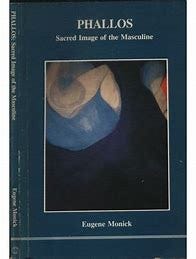Men need to understand the psychological underpinnings of their gender and their sexuality better than they do. One might think that in a patriarchal society males would grasp the basis of masculine identity naturally and spontaneously. They usually do not.
For many men, the dominance of the masculine is taken for granted, so familiar is their experience of superior status. But for an increasing number, masculinity is as much an enigma as femininity. These men do not easily make assumptions about themselves and their behavior and place in life. They feel that something is missing in their psychological situation, and they come to therapy to correct it. What they are given, often, are definitions of masculinity that only obliquely address the disjuncture they feel in their lives. These men are masculine, but they are beyond the reach of the patriarchy. Even men who know themselves to be safely within the patriarchal framework know that something is amiss, that the old order is passing away.
There is a lack of contemporary Jungian writing about masculine issues in general, and almost nothing, since Erich Neumann’s Origins and History of Consciousness, on the archetypal basis of masculinity. My suspicion is that the lacuna is a result of the dominance of patriarchal attitudes in psychoanalysis, including Jung’s analytical psychology. One does not write about that which seems to be obvious. The problem is that patriarchal attitudes and values are no longer obviously true. Unless masculinity is differentiated from patriarchy, both will go down the drain together.
To write of archetypal masculinity means to concentrate upon phallos, the erect penis, the emblem and standard of maleness. All images through which masculinity is defined have phallos as their point of reference. Sinew, determination, effectuality, penetration, straightforwardness, hardness, strength—all have phallos giving them effect. Phallos is the fundamental mark of maleness, its stamp, its impression. Erection points to a powerful inner reality at work in a man, not altogether in his control. This inner reality may be different from a man’s conscious desires at a given time. Phallos is subjective authority for a male, and objective for those who come into contact with him. This is what makes phallos archetypal. No male has to learn phallos. It presents itself to him, as a god does. A male uses phallos; he is not a man if he cannot do so. Men need to know their source of authority and to respect their sacred symbol. Phallos opens the door to masculine depth.
Phallos has been neglected as an originating psychic force within the literature of psychoanalysis. It has been suggested by the fathers but not developed as a primal element in the psyche. Psychoanalytic theory, whether Freudian or Jungian, gives singular primacy to the mother as the basis of life. This is an error.
……….



